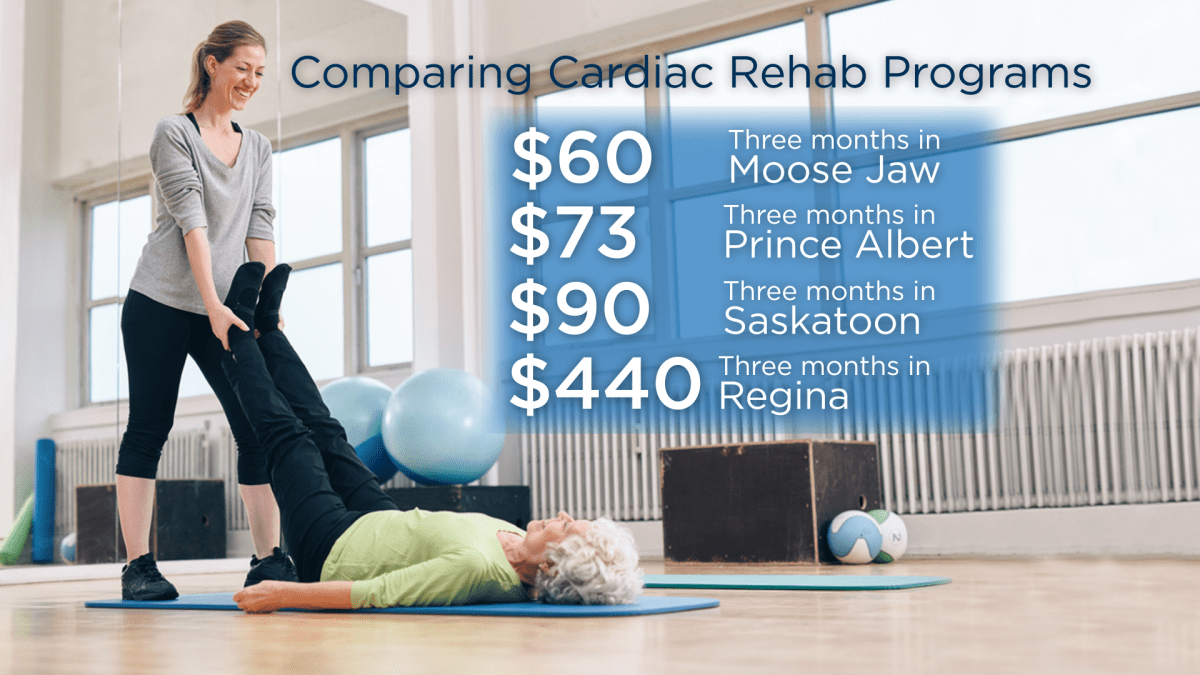REGINA – A group of people who have survived heart attacks and other cardiac issues say a Regina-based rehabilitation program is getting too pricey.

Visitors to the program at the University of Regina’s Dr. Paul Schwann Health and Research Centre are now paying up to $440 for three months.
“You have to decide if it’s really cost-effective.”
The medically supervised exercise program is custom-designed based on an individual’s condition and physical abilities.
In other Saskatchewan cities, similar programs are much cheaper: $90 in Saskatoon, $73 in Prince Albert and $60 in Moose Jaw.
Saskatoon and Regina have the most comparable programs because they’re the only ones overseen by physicians.
Eighteen patients were at the legislature Tuesday to make their case to the government, saying many of them can no longer afford the program.
“How many people are going to take them up on that?” said Lyn Goldman, a heart attack survivor. “People say, ‘Thanks very much, but I can’t afford that.’ ”
Debert, 38, suffered from a virus in 2008 that causes inflammation of the heart muscle. In 2012, he had an artificial heart implanted that acts as a turbine to distribute blood.
“I can’t have just a regular person standing on the side, saying, ‘Are you going to be okay?’ I need someone to jump into action if something really does go wrong, because I basically have minutes to spare.”
Education programs
Health Minister Dustin Duncan says funding of the program is up to the Regina Qu’Appelle Health Region, which has chosen to focus money elsewhere – covering the bills to educate people about diet and workouts instead of subsidizing the University of Regina-based facility.
In Regina, he says, not enough people were taking part compared to the other centres. According to a government spokesperson, just a quarter of the 392 eligible cardiac patients were interested in being referred to the Dr. Paul Schwann Centre.
“They were unhappy in terms of what the uptake of the program was,” Duncan said. “They felt, based on some of the feedback, people were saying they wanted a program that was more accessible.”
“The region was, as best as they could, trying to provide as much support for people … on the educational side.”
Cuts chance of death ‘in half’
The province commissioned a review of cardiac rehabilitation services in March 2011, which said investing in medically supervised exercise programs will save on health costs down the road.
“Those of us who are in it are in it for life.” – Lyn Goldman, heart attack survivor
The report recommends spending more on rehabilitation programs, calling them “clinically effective.”
Matthew Mayer, a senior research specialist with the Heart & Stroke Foundation, says the programs lower the death rate in survivors of cardiac events by as much as 25 per cent.
“Simply put, it reduces death,” Mayer said.
“Having that kind of supervised approach is a massive benefit, not just or the individual, but the families themselves, just to help you get back on your feet.”
Patients say they simply don’t want their heart problems to be a burden.
“We want to stay out of emergency, we don’t want to go to the hospital,” Goldman said.
“Those of us who are in it are in it for life.”





Comments